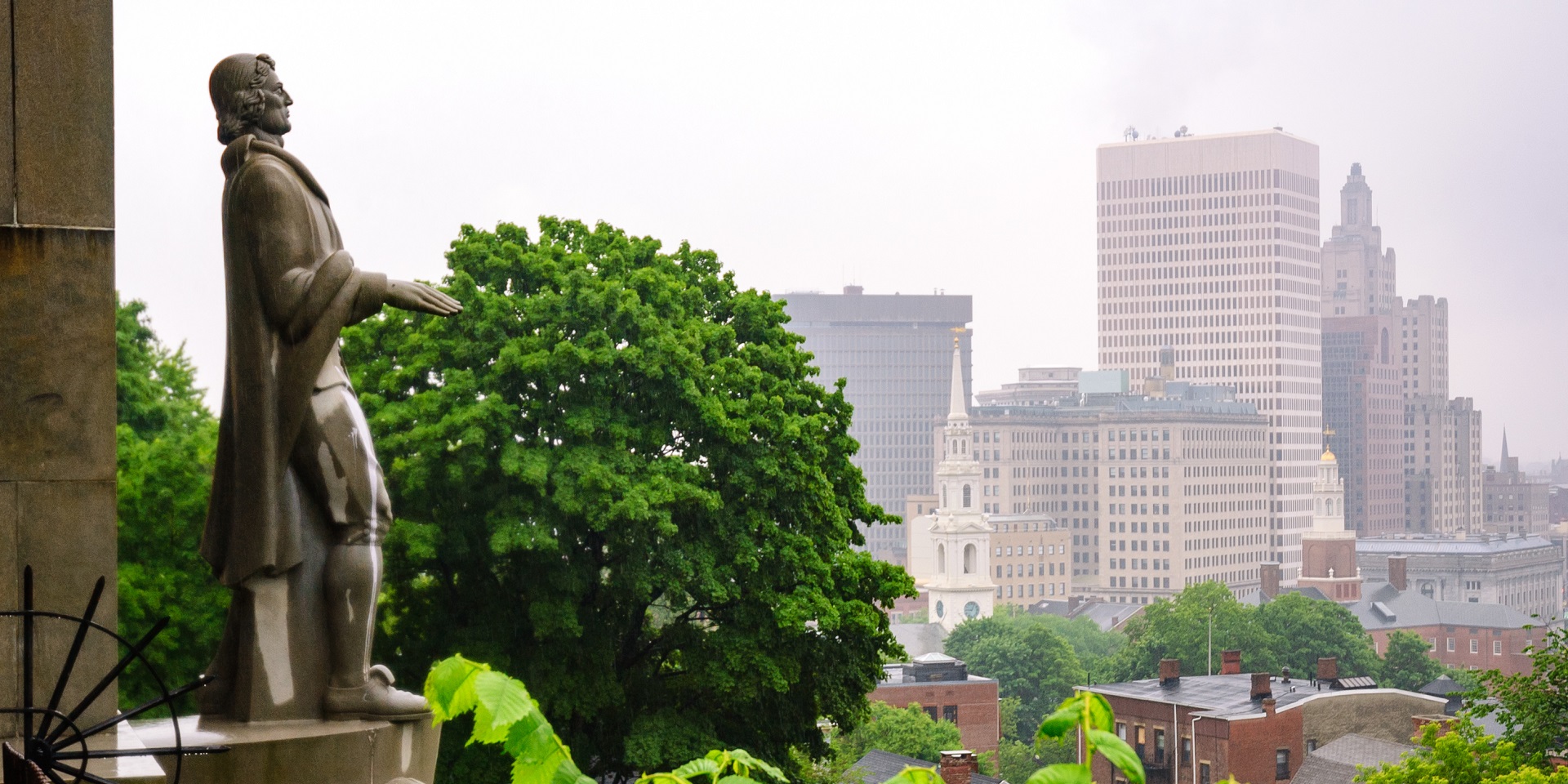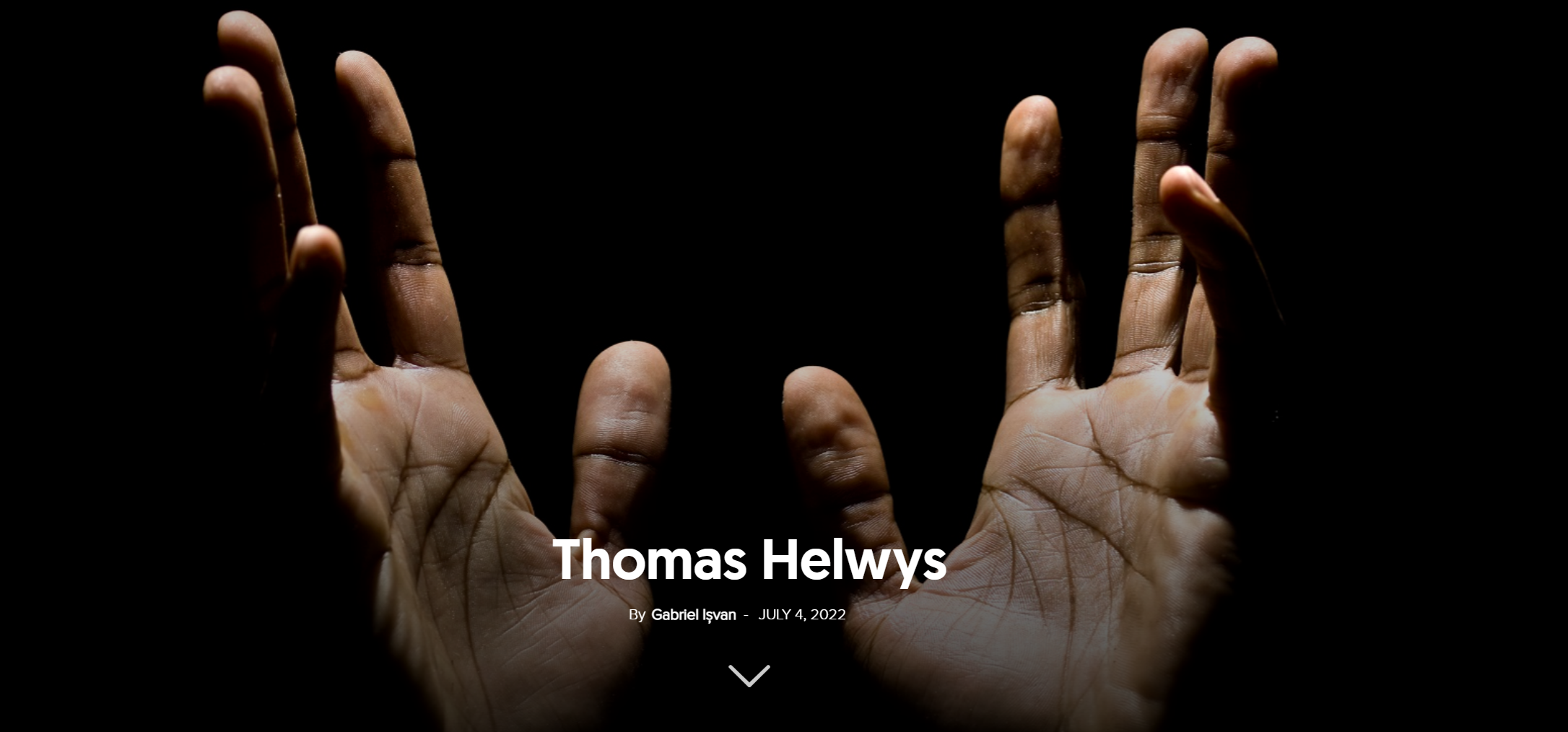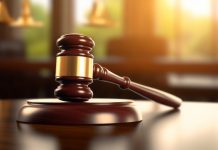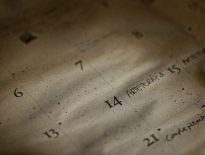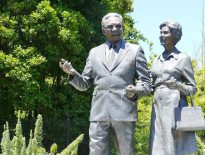It is no coincidence that the first Baptist church in the United States, the first synagogue, and the first Quaker assembly house are all located in the small American state of Rhode Island. Their existence is due to the influence of Roger Williams, who resolutely upheld the principle of freedom of conscience more than 100 years before it was invoked in the First Amendment to the United States Constitution.
Roger Williams was born in London around 1603 into a merchant’s family. Not many details are known about his childhood, but we do know that, as a teenager, he taught himself to use shorthand, becoming the secretary of the famous lawyer Sir Edward Coke, who later sponsored his studies at the prestigious Charterhouse School. Because he excelled in Hebrew, Greek, and Latin, he received a scholarship to Cambridge, from which he graduated in 1627. Two years later, Williams was ordained as a priest in the Anglican Church and married Mary Bernard, with whom he would have six children.
In the New World
Williams shared the Puritan beliefs of many Englishmen of his day. Persecuted in England, the Puritans sought refuge in the New World. In 1630, 1,000 of them left for Massachusetts Bay, and Roger and Mary followed them the next year.
Williams was invited to serve in the church in Boston, but refused, arguing that church members were not sufficiently devoted to true worship because they had not separated from the Church of England. He later agreed to serve in the separatist churches of Salem and Plymouth, but these were also not “pure” enough for the young preacher. He advanced ideas that called into question the very foundations of colonial society.
The Puritans held that the state should be concerned with the spiritual well-being of its citizens. However, from Williams’ perspective, the role of the state was limited to regulating human relations, and it had no right to interfere in the believer’s personal connection with God. He opposed forced worship and remuneration of the clergy from the money resulting from taxes and fines. Williams pointed out that, with the coming of Jesus, God had abandoned the model of theocracy. “My kingdom is not of this world,” the Saviour had said.[1]
Williams began trading with Native Americans in the region, being known for his honest and respectful approach. In time, he came to know the natives better than any other Englishman and became friends with the chiefs of the Wampanoag and Narragansett tribes. He denied the settlers’ right to establish settlements in New England based solely on royal decrees, emphasising that the land belonged to the natives and had to be bought from them.
In October 1635, the Massachusetts Bay court sentenced him to exile on account of “new and dangerous ideas.” Roger Williams received permission to remain in the colony until spring came, in exchange for a promise not to share his ideas in public. However, he continued to talk to friends who visited him. In danger of being arrested and deported to England (because authorities believed he had broken his promise), Williams took refuge on Indian territory, and with their help survived the harsh winter of 1636.[2]
A refuge for freedom of conscience
With the arrival of spring, Williams settled with a group of sympathisers on a piece of land received from the Wampanoag Indians. However, when he learned the land was situated in Plymouth, he crossed the River Seekonk and bought a piece of land from the Narragansett Indians. He wrote: “Having, of a sense of God’s merciful providence unto me in my distress, I called the place PROVIDENCE, I desired it might be for a shelter for persons distressed for conscience”.[3]
The new city had to be a settlement of equal citizens, each settler receiving an equal piece of land and each head of household benefiting from a vote in the general assembly of the community. The decisions, adopted according to the vote of the majority, focused exclusively on civil matters. The authority of the state did not derive from the divine mandate, but from the individuals’ consent. There was no official church in Providence, no attendance at religious services was required, and oaths in the name of God were not practised. At the time, all of these were new and revolutionary ideas.[4]
In England
In 1643, Williams embarked for England in order to obtain a charter to legitimise the colony in Narragansett Bay (in addition to Providence, settlements such as Newport and Portsmouth had been established in the meantime). Arriving in London, he printed his first book, A Key into the Language of the Americas, which extensively introduced the language and culture of the Narragansett Indians and soon became very popular. Having obtained the much-desired charter, Williams returned to America, but not before publishing The Bloudy Tenent of Persecution, a powerful apology for freedom of conscience,[5] which caused a huge scandal and was subsequently banned by the Parliament.
In the preface to his masterpiece, addressed to the “courteous reader,” Williams wondered: “What Jesus would do were he in London in 1644? Which religion would he endorse?”, convinced that everyone would confidently reply: ‘Mine.’ “All right,” said Williams, ‘I do not want to argue about that. But my question is this: What weapons would he provide to see that the religion which Parliament endorsed was followed by all in England?’”. The answer was clear: none. Since He used no other weapon in His own work other than the weapons of persuasion and love, these were the only tools His faithful followers could also use.[6]
In 1647, settlements in Narragansett Bay merged under the name of “Colony of Rhode Island and Providence Plantations”. In 1651, however, William Coddington obtained another charter, which made him “governor for life” over part of the territory. To counter his claims, Williams had to make a second trip to England, with John Clarke. The latter would remain in London for the next decade to wait for a new document to be issued, while Williams would return to Providence and serve as governor between 1654 and 1658.
In 1663, King Charles finally signed a new charter. The king’s will was for Rhode Island to remain a living experiment, in which all subjects had full religious freedom. The text of the charter was later imitated by the documents of New Jersey and Carolina.[7]
The last years
Although Roger Williams used his diplomatic skills for a long time to maintain good relations between the British and the Indians, a series of hostile incidents eventually triggered open conflict. Williams could not prevent the war of 1675–1676, which caused heavy losses on both sides, including the burning of the city of Providence. However, Roger lived to see its rebirth from ruins, and the colony grew due to its climate of freedom, which attracted settlers of all religious faiths. Williams died in Providence in 1683.
The legacy
Williams’ beliefs profoundly influenced thinkers such as John Milton and especially John Locke, whose work was closely studied by Thomas Jefferson and the other founding fathers of the United States.[8] In treating the natives with respect, in defending freedom of conscience, and in supporting the separation of church and state at all costs, Roger Williams was many years ahead of his time. His convictions, applied with such courage and determination, were a blessing to all the generations that followed. But Roger Williams’ ultimate goal was not to create a model society. He was, above all, a devoted Christian, for whom this life was only a time of waiting, and his greatest desire was to meet his Saviour.
He wrote: “I ask the way to lost Zion; I witness what I believe; I seek patiently (the Lord assisting) in sackcloth; I long for the bright appearance of the Lord Jesus.”[9]
Dani Tudorie has a degree in Pedagogy and Theology, and is currently pursuing a master’s degree in the Department of International Relations and European Integration of the National School of Political and Administrative Studies.












